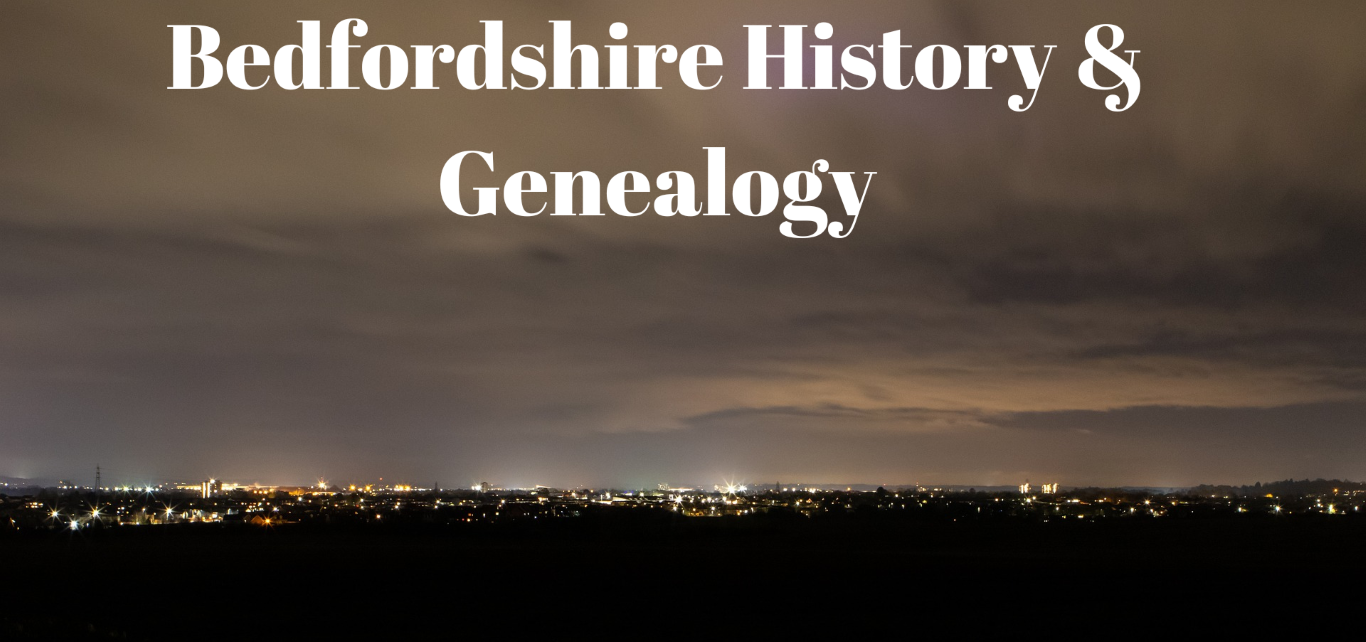Harrold
[From Samuel Lewis's Topographical Dictionary of England 1831.]
HARROLD, a market town and parish in the hundred of WILLEY, county of BEDFORD, 8 miles (N.W. by W.) from Bedford, and 58 (N.N.W.) from London, containing 939 inhabitants. This small town is situated in a fertile agricultural district, on the banks of the river Ouse, over which there is a stone bridge. The only branch of manufacture carried on is that of lace. There is a small market on a Tuesday; and fairs for the sale of (cattle and pedlary) are held on the Tuesdays preceding May 13th, July 6th, and October 11th. The petty sessions for the hundreds of Barford, Stodden, and Willey, are chiefly held here, but sometimes at Bletsoe. The living is a discharged vicarage, in the archdeaconry of Bedford, and diocese of Lincoln, rated in the king's books £8, endowed with £200 private benefaction, and £200 royal bounty, and in the patronage of the Countess De Grey. The church, dedicated to All Saints, is a fine structure, with a handsome tower and spire. There is a place of worship for Independents. Six almshouses for six poor widows were founded in 1723, by Mrs. Anne Jolliffe, and subsequently received a small endowment from a benefaction by her niece, Ann Mead, who also gave £20 per annum to the vicar, for an afternoon lecture every Sunday. A priory was founded here in the reign of Stephen, which afterwards became a convent of Augustine nuns, the revenue of which, at the dissolution, was estimated at £47.3.2.: there are no remains of the conventual buildings except the refectory, which has been used as a barn.
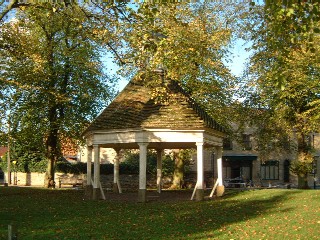
The Old Butter Market |
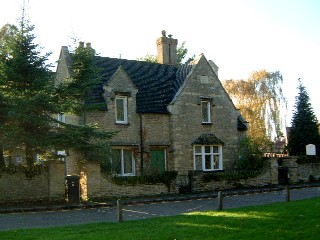 The Old School built 1847 |
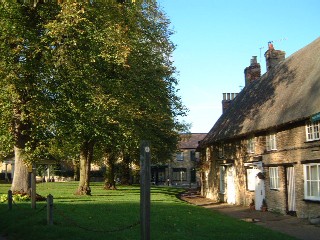
Houses alongside the Green |
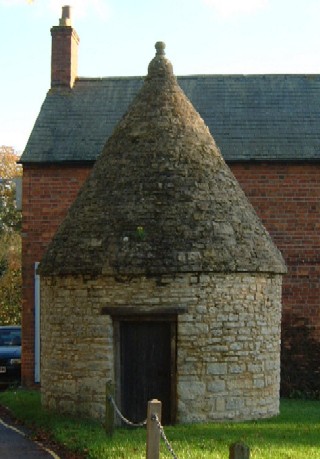
The old lock-up |
